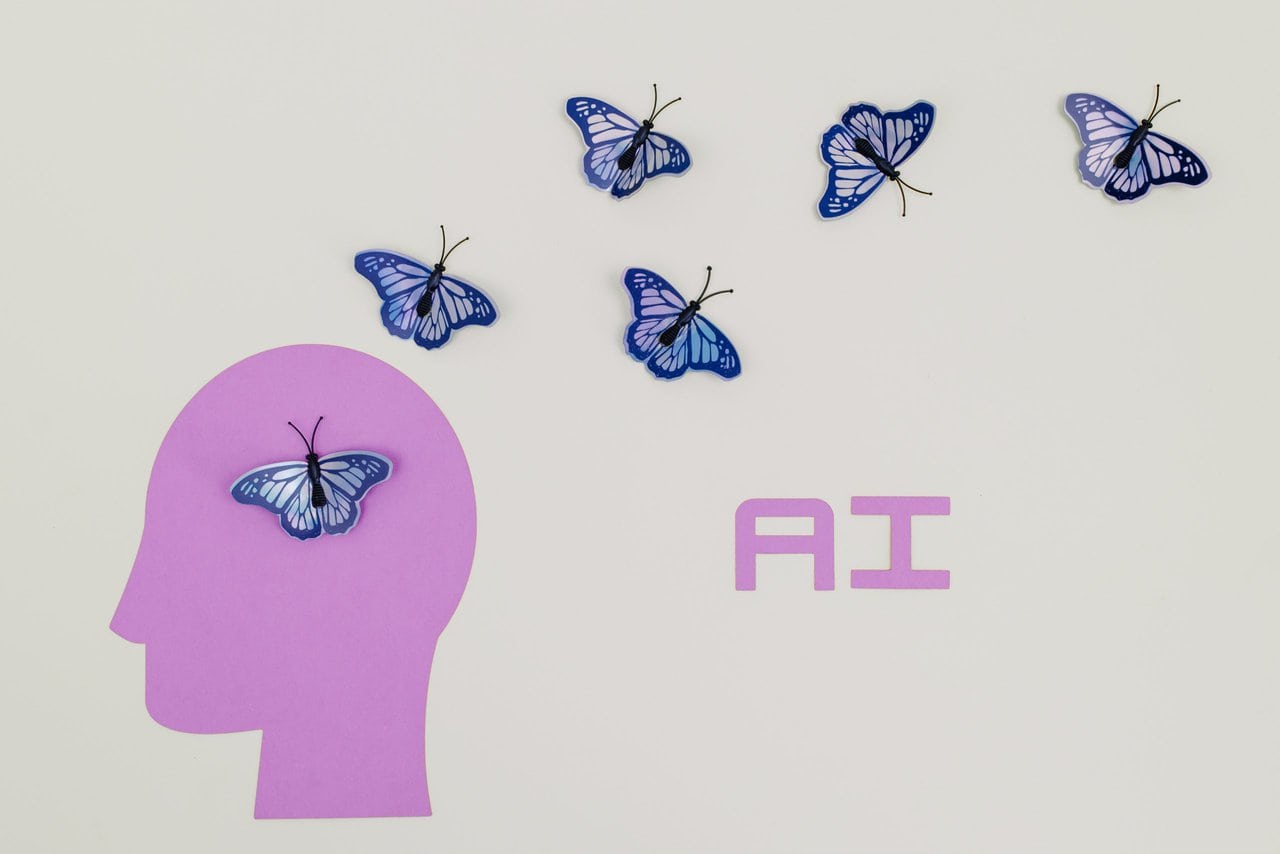In an era dominated by artificial intelligence (AI) and automation, it comes as no surprise that the field of marketing is also evolving to harness the power of these cutting-edge technologies. As businesses strive for greater efficiency and accuracy in their marketing strategies, a new wave of job opportunities has emerged that focuses specifically on AI. From AI-driven content creation to predictive analytics and customer segmentation, these roles promise to revolutionize the way marketers connect with their target audiences. Marketers are also using software solutions like Atlas UP to analyze marketing data and optimize campaigns. In this article, we explore some of the exciting new marketing jobs that leverage AI technology to drive innovation and success in an increasingly competitive marketplace.
The Rise of AI in Marketing
In recent years, the rise of artificial intelligence (AI) has revolutionized various industries, and marketing is no exception. With its ability to analyze vast amounts of data and make predictions based on patterns, AI has become an essential tool for marketers. It enables them to create targeted advertisements, personalize customer experiences, and automate repetitive tasks.
One area where AI is making a significant impact is in predictive analytics. By analyzing consumer behavior patterns, purchasing history, and other data points, AI can predict future trends and behaviors with remarkable accuracy. Marketers can then use these valuable insights to tailor their campaigns and messaging in real-time.
Another fascinating application of AI in marketing is chatbots. These intelligent virtual assistants can provide instant customer support through websites or messaging apps. They not only save time by answering common queries but also gather important data about customer preferences and pain points that businesses can leverage to enhance their offerings.
As AI continues to advance at a rapid pace, there’s no doubt that more job positions will emerge within the marketing field focusing specifically on this technology. From AI strategists who develop intelligent algorithms to data scientists who analyze vast datasets for actionable insights – the demand for such roles will only continue to grow as companies recognize that harnessing the power of AI is crucial for staying competitive in today’s market.
Overall, the rise of AI in marketing presents exciting opportunities for professionals willing to embrace this new era.

The Role of AI in Data Analysis
AI has emerged as a powerful tool in the field of data analysis, revolutionizing how businesses process and utilize their data. With its ability to quickly sift through massive amounts of information, AI enables organizations to gain valuable insights and make data-driven decisions with greater accuracy. Traditional data analysis methods often involve manual processes that are time-consuming and prone to human error. However, AI can automate these tasks, identifying patterns and trends in the data more efficiently.
One aspect where AI truly shines is predictive analytics. By analyzing historical data, AI algorithms can generate predictions about future outcomes or trends. This capability is invaluable for companies looking to optimize their strategies and stay ahead of the competition. For example, in marketing, AI-powered analytics can help identify which customer segments are most likely to purchase a specific product or service, enabling marketers to tailor their campaigns accordingly.
Furthermore, AI is continually evolving and improving its capabilities in complex tasks such as sentiment analysis and image recognition. Sentiment analysis allows companies to understand how customers feel about their products or services by analyzing social media posts or customer reviews. On the other hand, image recognition technology helps recognize faces or objects in images accurately. These advanced forms of data analysis can provide new perspectives on consumer behavior and preferences that were previously difficult to capture through traditional methods.
In conclusion, the role of AI in data analysis cannot be overstated.
AI-Powered Customer Relationship Management
AI-powered customer relationship management (CRM) is revolutionizing the way businesses interact and engage with their customers. With its ability to analyze vast amounts of data, AI can provide invaluable insights about consumer behavior, preferences, and even predict future needs. Gone are the days of relying on manual processes to manage customer relationships; AI has taken over and is streamlining the entire process.
One of the key benefits of AI-powered CRM is its ability to personalize customer interactions at scale. By analyzing individual customer data such as purchase history, browsing behavior, and engagement patterns, AI can deliver tailored marketing messages that resonate with each individual customer. This not only improves customer satisfaction but also leads to higher conversion rates and ultimately boosts revenue.
Moreover, AI-powered CRM systems can play a crucial role in identifying potential churners or high-value customers for a business. By analyzing various touchpoints along the customer journey, from website visits to interaction with support agents, AI algorithms can identify patterns that indicate a potential churner. Armed with this information, businesses can take proactive measures like targeted discounts or personalized offers to retain these customers.
In conclusion, AI-powered CRM is transforming how businesses build and maintain their relationships with customers by providing personalized experiences and predictive insights. This technology enables companies to move away from outdated manual approaches toward more efficient and effective strategies in managing and nurturing valuable customer relationships. As this field continues to progress rapidly, it presents exciting opportunities for marketers to harness the power of artificial intelligence in delivering exceptional results for their organizations.

Chatbots and Virtual Assistants in Marketing
Chatbots and virtual assistants have emerged as powerful tools in the field of marketing, revolutionizing the way businesses interact with their customers. These AI-based systems not only provide personalized and instantaneous responses to customer queries but also streamline marketing processes by automating tasks such as lead generation and data analysis. In fact, according to a recent study, 80% of businesses are already using or planning to implement chatbots within their marketing strategies.
One key advantage of employing chatbots in marketing is their ability to gather valuable customer insights. By analyzing user interactions, preferences, and purchase behaviors, chatbots can generate detailed analytics reports, helping businesses better understand their target audience. Armed with this information, marketers can tailor their campaigns and messages more effectively, ensuring maximum engagement from potential customers.
Another benefit lies in the enhanced customer experience these AI-powered assistants deliver. Chatbots are available 24/7 and capable of handling an unlimited number of inquiries simultaneously. This means that no matter when or how many questions customers have, they will receive prompt assistance without having to wait for a human representative. Moreover, chatbots can remember previous interactions and personalize conversations based on past engagements, making customers feel valued and understood.
In conclusion, adopting chatbots and virtual assistants in marketing opens up new possibilities for businesses – from streamlining operations to delivering exceptional experiences for customers. As AI technology continues to advance rapidly, we can expect even more innovations in this space that will further amplify the role of bots as invaluable assets within the marketing world.
Personalized Marketing with AI
In today’s fast-paced digital landscape, personalized marketing has become a vital strategy for businesses to connect with their customers on a deeper level. With the advent of artificial intelligence (AI), companies now have the ability to collect vast amounts of data and tailor their marketing efforts accordingly. AI enables marketers to analyze customer behavior, preferences, and demographics in real-time, allowing for highly-targeted and personalized campaigns.
One exciting aspect of personalized marketing with AI is the ability to create dynamic customer journeys. By harnessing AI algorithms, marketers can predict consumer behavior and automate responses based on individual preferences. This not only saves time but also enhances the overall customer experience by providing tailored recommendations that are directly relevant to their needs and interests.
Furthermore, AI-powered tools can help marketers identify new opportunities through extensive analysis of customer data. By leveraging machine learning algorithms, businesses can gain valuable insights into emerging trends or untapped markets. This allows marketers to proactively adapt their strategies and stay ahead of competitors by creating campaigns that resonate with consumers before anyone else does.
Overall, personalized marketing with AI opens up a world of possibilities for businesses seeking to establish stronger connections with their target audiences. It allows for more efficient use of resources while delivering tailored experiences that truly engage customers at every touchpoint in their journey. As technology continues to evolve, so too will the role of AI in personalization – making it an essential skill set for future marketing professionals aiming to drive success in this ever-changing landscape.

AI for Content Creation and Optimization
AI for Content Creation and Optimization is quickly becoming a game changer in the world of marketing. With advancements in Natural Language Processing and Machine Learning, AI can now generate high-quality content that rivals that of human writers. The ability to create targeted and relevant content at scale has immense potential for businesses looking to engage with their audience on a deeper level.
One of the key benefits of using AI for content creation is the ability to optimize it for search engines. By analyzing data on consumer behaviors and preferences, AI algorithms can determine which keywords and phrases are most likely to attract organic traffic. This means that businesses no longer have to rely solely on educated guesses or trial-and-error when it comes to improving their website’s search engine rankings.
Beyond creating content, AI can also assist marketers in optimizing existing content. Through sentiment analysis, AI algorithms can analyze social media mentions, reviews, and customer feedback to provide actionable insights into how a business’s messaging could be improved. This allows marketers to fine-tune their campaigns in real-time based on actual customer sentiments rather than relying solely on gut feelings or past experiences.
In conclusion, AI has revolutionized the way we approach content creation and optimization in marketing. It provides businesses with the tools they need to create high-quality, targeted content at scale while also helping them improve their overall messaging through real-time analysis of customer sentiment.
DragGAN AI Tool for Visual Content Creation
In addition to text-based content creation, AI is revolutionizing visual content through tools like DragGAN AI. This innovative platform allows marketers to create high-quality graphics and animations with ease, leveraging AI to simplify complex design tasks. DragGAN AI’s intuitive interface and advanced features make it an excellent choice for creating engaging visual content that captures audience attention, thereby enhancing marketing campaigns and driving better results.
Conclusion: The Future of AI in Marketing
In conclusion, the future of AI in marketing is undoubtedly bright, with endless possibilities and opportunities for businesses of all sizes. As AI technology continues to evolve and improve, we can expect to see even more personalized and targeted marketing campaigns that are able to reach individual consumers on a level never before possible.
One area where AI will likely make a significant impact is in customer segmentation and targeting. By analyzing vast amounts of data, AI algorithms can identify patterns and behaviors that humans might miss. This will allow marketers to create more tailored messages, ensuring that they are reaching the right people at the right time with the right message.
Additionally, as chatbots become smarter and advancements are made in natural language processing (NLP), we can expect more seamless interactions between customers and brands. Chatbots will be able to understand complex queries and provide relevant answers promptly, enhancing customer experiences while reducing response times.
Overall, AI has the potential to revolutionize every aspect of marketing by providing powerful insights, automating repetitive tasks, improving customer experiences, and driving business growth. As this technology continues to advance rapidly, marketers must adapt quickly to stay ahead in this ever-evolving landscape. Embracing AI-powered tools and strategies will be key for businesses looking to thrive in the future of marketing.
